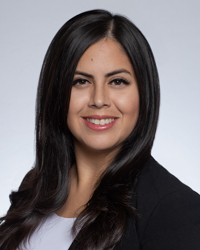Labor Code 3201.5 allows for collective bargaining agreements between private employer(s)/labor unions and employees that establish alternative dispute resolution (ADR) programs which replace parts of the typical workers’ compensation system.
Alternative Dispute Resolution (ADR) programs are designed to deliver benefits to injured workers and resolve disputes more efficiently than if the dispute was to be handled through the Workers’ Compensations Appeals Board. These programs were first allowed in 1993 and have since become increasingly popular in the union sector.
A collective bargaining agreement is advantageous for both injured workers and employers. It limits litigation, ensures prompt medical care, encourages safety, and helps facilitate return-to-work for the employee.
Participants in alternative dispute resolution (ADR) programs are typically afforded the benefits of an ombudsperson who is trained to assist workers in managing the workers’ compensation system and the specifics of their particular program. The ombudsperson is an impartial case administrator who assists in filing claims, working out issues with opposing parties, securing medical treatment, settlements, and facilitating mediations and arbitrations when necessary. The ombudsperson also serves as the point of contact for both sides of the claim when it is handled under an ADR carve-out agreement. They often ensure that the claims move along without unnecessary delay and to the satisfaction of all the parties involved.
Currently, ADR programs are fully authorized in ten states: California, Hawaii, Florida, Maryland, Kentucky, Maine, New York, Massachusetts, Minnesota, and Pennsylvania. If a case that is subject to ADR is improperly filed at the WCAB, the defendant must get the case dismissed as the WCAB lacks jurisdiction over a claim falling under an ADR program. In order to do so, you must submit a petition for dismissal with the following documents:
- A copy of the ADR agreement
- A letter of eligibility from the Administrative Director of the Division of Workers’ Compensation; and
- A copy of the memorandum of understanding
Once the case is dismissed at the WCAB all parties must work within the ADR program to administer and resolve these claims. Every ADR program has its own rules, forms, agreed providers, and personnel. In order to successfully handle an ADR claim, it is just as important to understand the carve-out program as it would be to understand the Labor Code when handling a Workers’ Compensation claim.

In my experience, parties communicate much more frequently and openly when a claim is handled under an ADR program versus at the WCAB. Open communication allows for faster resolution of issues than in traditional workers’ compensation claims. Typically, the time to resolve these claims is much less than the time it takes to handle them through the traditional workers’ compensation system. Becoming familiar and knowledgeable with these fast-paced systems can minimize frivolously-litigated claims and result in more beneficial resolutions for all parties.
WORK CITED
For more information about carve-outs, go here:
https://www.dir.ca.gov/CHSWC/carve-out1.pdf
For a webinar on ADR programs, click here:
https://bradfordbarthel.com/event/adr-advantage/
For ombudsman information, click here:
https://shogrenservices.com/
Stephanie Rosil is a partner at Bradford & Barthel’s Ontario office, where she aggressively defends workers’ compensation cases of all types. If you have questions about workers’ compensation defense issues, please feel free to contact her at srosil@bradfordbarthel.com or by calling 909.476.0552.
Viewing this website does not form an attorney/client relationship between you and Bradford & Barthel, LLP or any of its attorneys. This website is for informational purposes only and does not contain legal advice. Please do not act or refrain from acting based on anything you read on this site. This document is not a substitute for legal advice and may not address every factual scenario. If you have a legal question, we encourage you to contact your favorite Bradford & Barthel, LLP attorney to discuss the legal issues applicable to your unique case. No website is entirely secure, so please be cautious with information provided through the contact form or email. Do not assume confidentiality exists in anything you send through this website or email, until an attorney/client relationship is formed.


